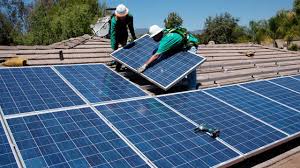CLASP and the Global Energy Alliance for People and Planet (GEAPP) have announced the expansion of their Productive Use Financing Facility (PUFF) with a $6.1 million funding package. The initiative is aimed at making energy-efficient appliances more affordable for small businesses, farmers, and households in Nigeria, Kenya, and Ethiopia. The announcement was made recently at a clean energy gathering in Cape Town, South Africa.
With the new funding, the PUFF programme is expected to support the distribution of 10,000 energy-efficient, income-generating tools, including solar-powered refrigerators, milling machines, water pumps, and agricultural equipment. These tools are meant to help small businesses, women-led enterprises, and low-income families take part in the clean energy economy and earn more income.
The Director of Communications for GEAPP in Africa, Ms. Annette Mutuku, said in a statement that PUFF offers a combination of grants, subsidies, and technical support to appliance suppliers and distributors. She explained that the idea is to reduce the retail cost of these essential appliances and make them more accessible to people who need them most.
The statement further noted that this new phase of PUFF—called PUFF 2.0—builds on a two-year pilot phase that worked with 24 companies in six countries. During the pilot, over 16,000 appliances were brought into the market, reaching more than 58,000 households. It also helped to strengthen local supply chains for clean energy products and improve the ability of small businesses to deliver energy solutions.
Speaking on the importance of the initiative, CLASP’s Senior Director for Africa, Mr. Emmanuel Aziebor, said access to energy is important, but having the right appliances is what turns energy into opportunity. “Efficient appliances and equipment should be seen as part of basic energy infrastructure, just like solar panels or mini-grids,” Aziebor said.
PUFF 2.0 is expected to create over 3,000 green jobs across the three target countries. It will also help to drive up demand for solar-powered and energy-efficient appliances by cutting down their acquisition costs. During the pilot phase, women made up nearly 50 percent of the buyers, and many of them reported that their household income went up significantly after they started using the appliances.
A Nigerian shopkeeper, Mrs. Abibat Akinwale, shared how the initiative helped her business. “We used to spend a lot on ice blocks that melted before the end of the day. It led to losses and debts. But since I got a solar fridge, things have changed. I now sell cold drinks and make better sales,” she said.
The organisations behind the initiative pointed out that even though electricity access is improving in many parts of Africa, the high cost of appliances continues to limit what people can do with the electricity. PUFF’s financing approach is meant to break that barrier by helping businesses sell their products at lower prices, while also offering long-term support.
GEAPP’s Managing Director for Productive Use of Energy, Ms. Makena Ireri, explained that PUFF 2.0 is designed to bridge the gap between energy access and economic growth. “Electrification is not enough if people can’t use the power to improve their lives. Through PUFF 2.0, we are working to make sure that energy leads to productivity. We want it to support agriculture, manufacturing, small shops, and other businesses that power the local economy,” she said.
Ireri also mentioned that increasing incomes in rural and low-income areas through clean energy tools would lead to wider economic growth. According to her, this model can be expanded to other African countries if it continues to succeed in Nigeria, Kenya, and Ethiopia.
CLASP and GEAPP say they are committed to supporting inclusive growth and will continue to partner with local businesses, development agencies, and governments to scale up the programme.
